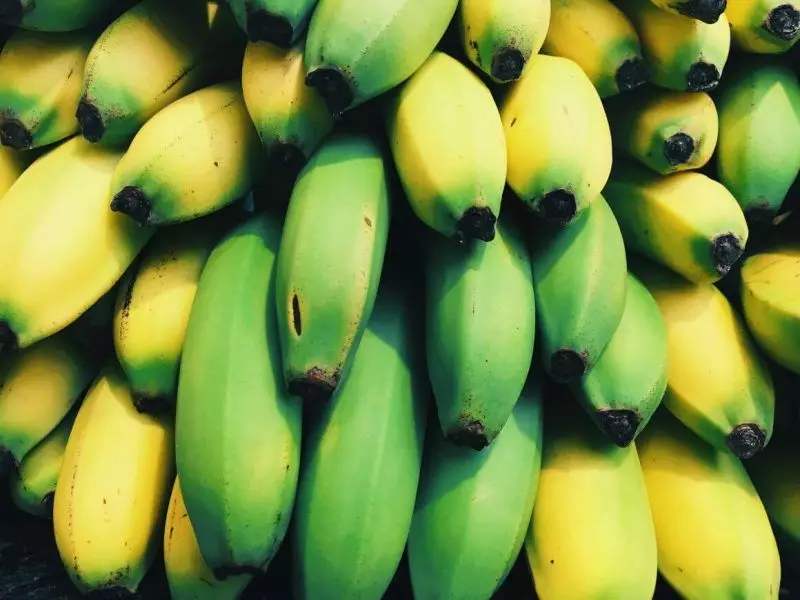
Many people consider chia seeds to be a superfood. But what does that mean? According to the Oxford Languages dictionary, “superfood” is a nutrient-rich food considered to be especially beneficial for health and wellbeing. [1] However, “superfood” is often used as a marketing term to boost sales and increase the selling price of products. All that in an extremely unregulated way.
Various online sources highlight different health benefits of chia seed consumption: from lower blood sugar and balanced cholesterol profile to increased immunity and weight loss. However, not all of these suggested health effects are backed up by science.
So what’s the deal with chia seeds? Are they really a “superfood” or a deception? This article will guide you through the nutritional profile of chia seeds and their related health benefits.
Let’s get started!
Why are chia seeds healthy?
When it comes to macronutrients, chia seeds have a very interesting profile. According to the USDA Food Data Central, 100 grams of chia seeds contain 18.29 grams of protein and 42.16 grams of fats.
The same amount of chia seeds also has 28.88 grams of carbs, 27.3 grams of which are dietary fiber. As a result, 100 grams of chia could supply you with about 90% of the recommended daily fiber intake. [2]
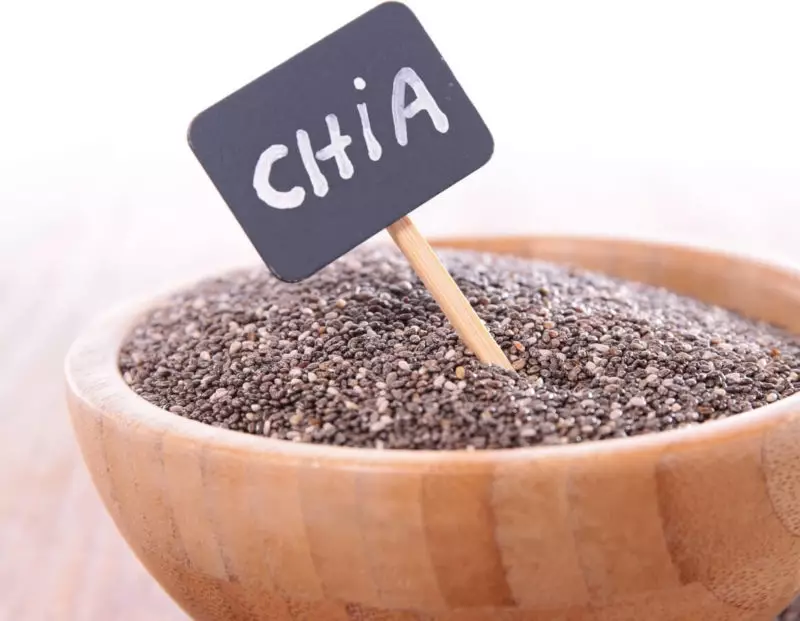
What about micronutrients? According to the Canadian Nutrient File, chia seeds contain noticeable amounts of the following micronutrients per 100 grams. [3]
- Calcium (631 mg)
- Iron (7.72 mg)
- Magnesium (335 mg)
- Phosphorous (860 mg)
- Zinc (4.58 mg)
- Manganese (2.723 mg)
- Selenium (55.4 mcg)
- Beta carotene (24 mcg)
- Folate (49 mcg)
- Niacin (8.830 mg)
Health benefits of chia seeds
Chia seeds are considered a superfood mainly because of their high omega-3 fatty acids and dietary fiber content. These two dietary compounds are mainly related to the health benefits of chia seeds: balanced cholesterol and blood pressure for heart health, increased satiety, antioxidant properties, and digestive health.
That being said, because of its “superfood fame,” chia seeds are often thought to promote weight loss and improve type 2 diabetes. However, the medical studies conducted on the topic are still inconclusive and contradicting.
Considering that, the source suggests consuming chia seeds as part of a balanced diet and healthy lifestyle is key to get the most health benefits out of this superfood. [4]
Remember that whenever you are increasing your intake of fiber-rich foods such as chia seeds, do it gradually and make sure you also have plenty of fluids to prevent the risk of bloating, gas, and other forms of digestive distress.
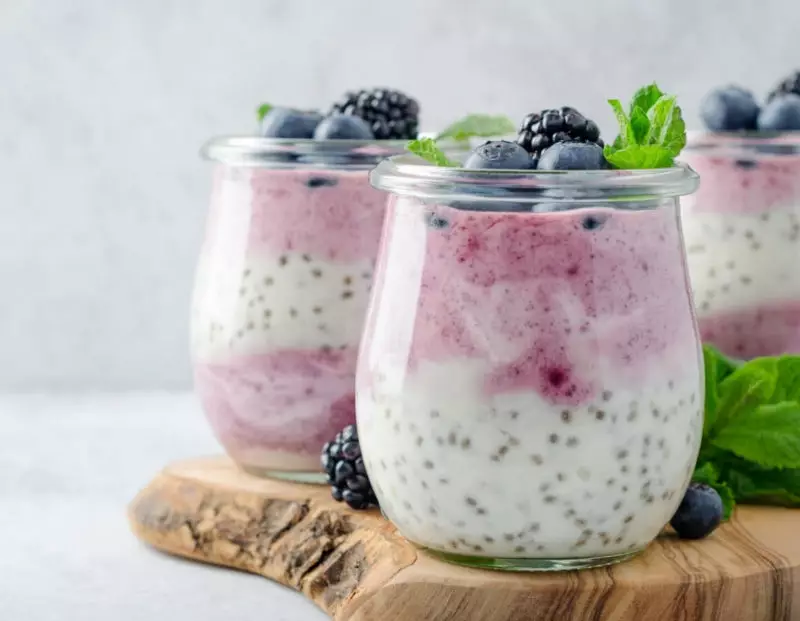
Now, let’s see the evidence for health benefits associated with chia seeds consumption!
Heart health
Evidence suggests that a high intake of plant foods and seafood rich in omega-3 fatty acids may reduce the risk of heart disease mortality. [5]
A recent 2021 study published in the Journal of Nutrition and Health suggests that daily supplementation with 40 grams of chia seeds for 12 weeks may reduce systolic blood pressure in patients with type 2 diabetes and hypertension. [7]
Keeping you full
Did you know that chia seeds have double the amount of dietary fiber (per 100 gram of product) compared to common grains and seeds? [8]
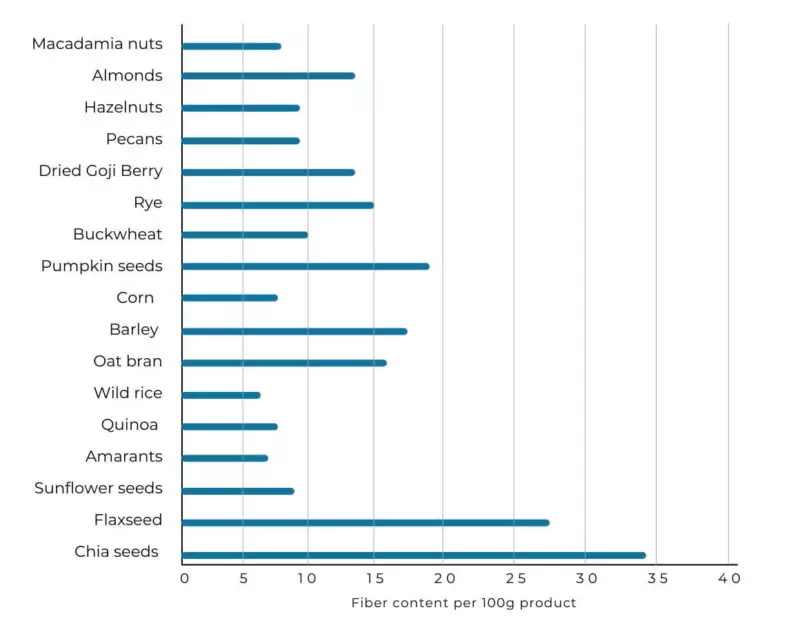
Sufficient daily fiber intake may result in an increased sense of satiety (for a longer time) after having a meal and decreased hunger during the day. This could lead to the consumption of fewer calories and eventually achieving caloric deficit and weight loss. [9]
Low risk of allergies
Chia seeds are free from gluten, lactose, and other common allergens. Evidence suggests that including chia seeds in your diet is unlikely to cause allergic reactions in the body.
While other sources of omega 3’s (like flaxseed and seafood) may cause diarrhea, abnormal behaviour, and dermatitis, chia seeds consumption is unlikely to be associated with such allergy symptoms. [11]
This makes chia a good protein alternative to animal products and other plant proteins.
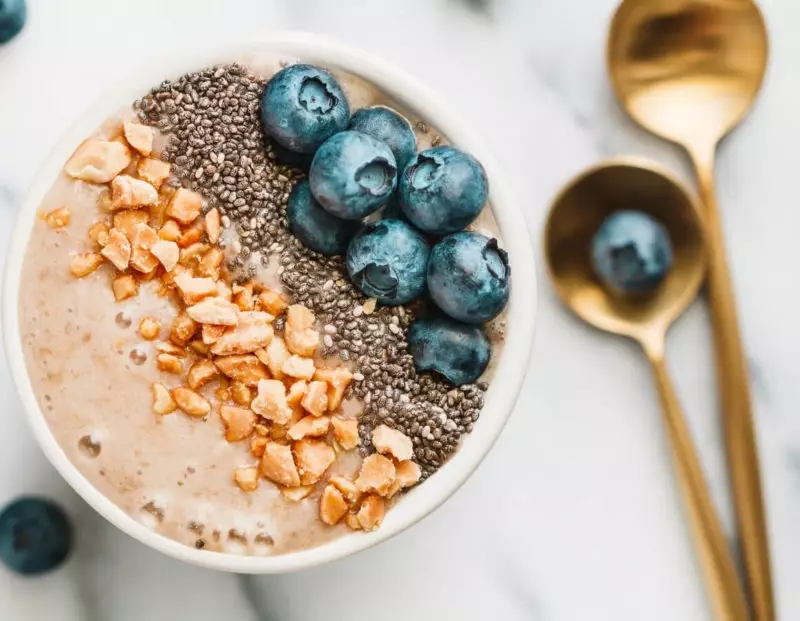
Antioxidant effects
Chia seeds contain noticeable amounts of antioxidant compounds, which could play a role in reducing the risk of heart and liver health issues, inflammation, premature aging signs, and cancer development. [11] The antioxidants in chia include:
- Chlorogenic acid
- Caffeic acid
- Myricetin
- Quercetin
- Kaempferol
Digestion support
Fiber is essential for keeping your digestive system healthy. This includes supporting bowel movements and regulating the increase in blood sugar as a result of the digestion process. [12] In that sense, chia seeds may help you achieve regular bowel movements and prevent constipation.
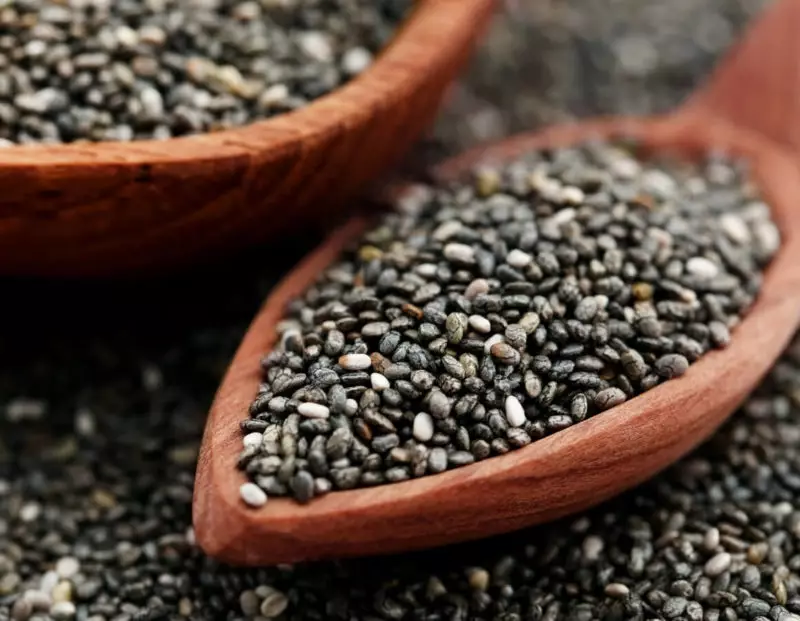
Diabetes management
Some research papers suggest that chia seeds consumption may provide glycemic control to patients with type 2 diabetes. [13] The reason for this mainly relies on the fact that dietary fiber may slow down the digestion process and prevent sharp spikes in blood sugar after a meal.
According to Harvard Health, chia alone is unlikely to improve the quality of life of diabetic patients and reduce the risk of type 2 diabetes. Instead, cutting back on refined grains and increasing the consumption of whole grains and foods could have a better effect on the overall health and wellbeing of both healthy and diabetic adults. [14]

